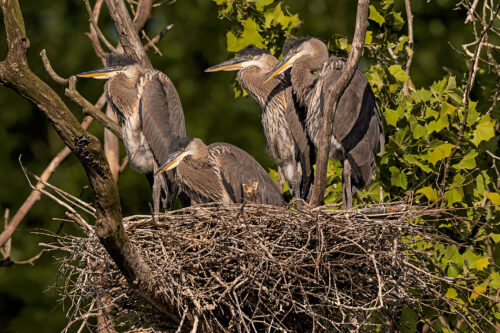Image Courtesy of on Flickr.
Close your eyes and take a deep breath. Imagine that you can suddenly hear the hum of two insects communicating, smell every scent trail, or even feel the Earth’s magnetic field. Supersonic hearing, enhanced smell, or an internal sense of direction—traits we think of as superpowers, but animals have long possessed them.
Join Ed Yong in his book An Immense World: How Animal Senses Reveal the Hidden Realms Around Us as he takes you on journeys you may literally never be able to see. For example, most animals can see ultraviolet (UV) light. With UV vision, rodents are better able to see birds in the sky, fish can easily identify plankton in water, and reindeer can comfortably find mosses and lichens to eat, all because of UV light detection. Yong’s curiosity will pull you in as he shows you discoveries made by scientists over the years, as well as his own encounters with the animal world; his easy-going language yet detailed imagery transports you right to the middle of other animals’ worlds while also teaching you about the science behind it all.
As you dive into the book, you’ll learn about different Umwelts—a German term popularized by the Baltic-German zoologist Jakob von Uexküll—defined as “the part of [the animal’s] surroundings that an animal can sense and experience—its perceptual world.” Yong writes, “Nothing can sense everything, and nothing needs to.” From hearing about everything from snakes and elephants to mosquitoes and dogs, you’ll realize that the sensory skill sets between animals are widely different, and for good reason. If we were to sense everything, Yong explains, “[we] would be overwhelmed by the flood of stimuli, most of which would be irrelevant.” The things we perceive are special to our Umwelt with unnecessary information filtered from our senses as we evolve.
And though we might wish for some of the senses other animals possess, human senses have advantages. For example, humans are one of the most visually adept species. While we may not be able to track scents with our noses, we are one of the best species at differentiating between scents.
However, most of all, we have the technology to explore the Umwelts of the world. “This ability to dip into other Umwelten is our greatest sensory skill,” says Yong. Though we may never be able to truly experience the Umwelts of other animals, our growing knowledge enables us to understand and choose to see the world from realms that are not our own. By reading Yong’s engrossing novel, the world as we know it suddenly becomes much more vibrant. As Yong puts it, “It is not a blessing we have earned, but it is one we must cherish.”

